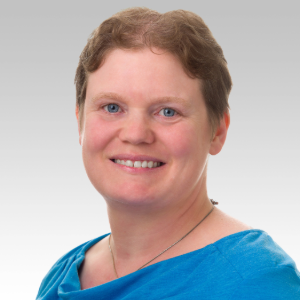
April 2025 Newsletter

April 2025 Newsletter

Faculty Profile
Elizabeth Bartom, PhD, is an associate professor of Biochemistry and Molecular Genetics and of Preventive Medicine in the Division of Biostatistics and Informatics. Her work aims to understand how the genome contributes to pathology and disease.
She is a member of the Center for Genetic Medicine, the Center for Human Immunobiology, the Northwestern University Clinical and Translational Sciences Institute (NUCATS), Robert H. Lurie Comprehensive Cancer Center of Northwestern University, the Center for Pathogen Genomics and Microbial Evolution and the Simpson Querrey Institute for Epigenetics.
What are your research interests?
I am interested in the genome, how it encodes biology and what goes wrong that causes pathology and disease.
How did you become interested in this area of research?
I initially got intrigued by the human genome when I was 12 and watched a PBS documentary called “The Secret of Life.” I went on to work on the Bacteriophage T4 Genome Project in college and on early annotation of the fruit fly genome as a new college graduate. I was a graduate student when the first draft of the human genome came out, and my thesis research was on finding patterns and a new class of repeats in the human genome. I have been applying genomics and genomic tools to the study of biology ever since.
What is the ultimate goal of your research?
I really just want to make new discoveries and help facilitate new research projects. I enjoy collaborating with other scientists and mentoring trainees. I would love to make a positive difference in human health and disease. My specific research questions are really guided by insight and opportunity and the collaborations that come my way. I am funded primarily by the National Cancer Institute (NCI), and both of my parents died of cancer, so I would particularly like to make a difference there. I also look for common threads between my projects, to see where insights from one project can lead to breakthroughs in another, seemingly unrelated project.
What types of collaborations are you engaged in across campus (and beyond)?
Northwestern is somewhat unique in having a specific faculty track called the “Team Scientist” track that really encourages collaborative science. I am a team scientist, and I work extensively with other scientists throughout my department and at Feinberg. Frequently, I collaborate on projects involving sequence analysis and bioinformatics, helping other scientists put the results of their experiments in genomic and biological context. I am also the scientific associate director for bioinformatics for the Robert H. Lurie Comprehensive Cancer Center of Northwestern University's Quantitative Data Sciences Core. I am always happy to help people try to understand their sequence data, and I serve on multiple thesis committees. Collaborators include Leonidas Platanias, MD, PhD, Diana Nora Vaz Saleiro, PhD, Marc Mendillo, PhD, Barbara Kee, PhD (UChicago), Jeff Savas, PhD, Marcus Peter, PhD Ali Shilatifard, PhD, Zibo Zhao, PhD, Lu Wang, PhD, Daniela Matei, MD, Seema Khan, MD, Eva Gottwein, PhD, Elizabeth Eklund, MD and Adam Sonabend, MD.
I am also course director for “Data Science for Biomedical Researchers,” a spring quarter course that provides a broad survey of data-intensive research methods to graduate students. A lot of the topics covered are sequence-based, but we will also look at image analysis, electronic health records, natural language processing and putting medical data in spatial context, among other topics. I hope to inspire students to try new methods and to introduce them to the local experts that provide lectures in the course on all of these diverse topics. There are vast quantities of publicly available research data out there that has been funded by the National Institutes of Health and the National Science Foundation. This is a treasure trove for young scientists interested in generating preliminary data to test hypotheses.
How is your research funded?
I have a R50 Research Specialist grant from the NCI that supports my work in cancer research. This supports 70 percent of my salary and provides travel funds. I also receive support from the Department of Biochemistry and Molecular Genetics and from the research grants of individual collaborators to work on particular projects.
Where have you recently published papers?
Recent publications have come out in PNAS, the Journal of Clinical Investigation, Nature Communications, Leukemia, Cell Reports and the Journal of Immunology.